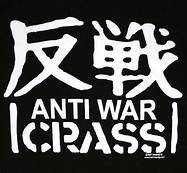17, Anarcha feminist
£0.45
Anarcha-feminism (also called anarcho-feminism or anarchist feminism) constitutes an attempt at drawing out the anarchist tendencies of feminism and the feminist tendencies of anarchism, in order to establish a dialogue between the two traditions.
In stock
Description
Anarcha-feminism (also called anarcho-feminism or anarchist feminism) constitutes an attempt at drawing out the anarchist tendencies of feminism and the feminist tendencies of anarchism, in order to establish a dialogue between the two traditions. Anarcho-feminists certainly share some of the ‘traditional’ feminist concerns and objectives (i.e. control over one’s body and sexuality; elimination of sex stereotyping; alternatives to the nuclear family; and the dismantling of patriarchal relationships). These concerns, however, are approached with a critique that aims its focus on power, by asking how power operates and what alternatives exist to it in each context.
Such a critique has been developed, specifically, in response to the male dominated movements of the Left. It can be traced back, at least, to the late 1970’s where in the South East and London Anarchist Libertarian conference arguments broke out over the organization of the conference itself. [1] Realizing that anarchist men were blind to the gender issues facing activist women, anarcho-feminists pushed for an autonomous women’s movement within the anarchist movement and for the small group model which did not alienate women the same way that large scale movements do. As such, the notion of a single overarching movement along with the movement leaders came under fire. In turn, what emerged as a desirable alternative, the autonomous, decentralized group, received criticism [2] from feminists who were concerned that the abandoning of leadership roles would result in a structureless paralysis of revolutionary potential. Nevertheless, anarcho-feminists defended the model claiming that it was a viable revolutionary alternative to the hierarchies found within large scale-movements. As Red Rosa and Black Maria explain: “Two, three, five or ten… individual revolutionaries who know and trust each other intimately can carry out revolutionary acts and make our own policy. As members of a leaderless affinity group, each member participates on an equal level of power, thus negating the hierarchical function of power.” [3]
The anarcho-feminist critique of power coupled with the desire for the elimination of all hierarchies is, in the classical anarchist spirit, particularly aimed at the state. Although anarcho-feminists are concerned about many social contexts, the state receives particular attention as “the ultimate stronghold of male domination”. [4] This position leads anarcho-feminism to distance itself from all other schools of feminist thought which seek to ‘empower’ women by promoting some of them to positions of power. It is here, perhaps, that the most startling and original work of anarcho-feminism emerges. The rejection of matriarchal depictions of women along with the rejection of the worker’s state (or women’s parties) runs counter-intuitive to many feminisms. Yet, anarcho-feminists continue to insist that (revolutionary) women must have no part in an oppressive structure. We can trace the refusal of participation and representation vis-à-vis the state to Emma Goldman, who rejected the project of woman’s suffrage, stating: “I do not believe that woman will make politics worse; nor can I believe that she could make it better. If, then, she cannot improve on man’s mistakes, why perpetrate the latter?” [5] The notion that power in the hands of women would still replicate hierarchies and structures of domination has been developed by anarcho-feminists as a vital critique of political action.





